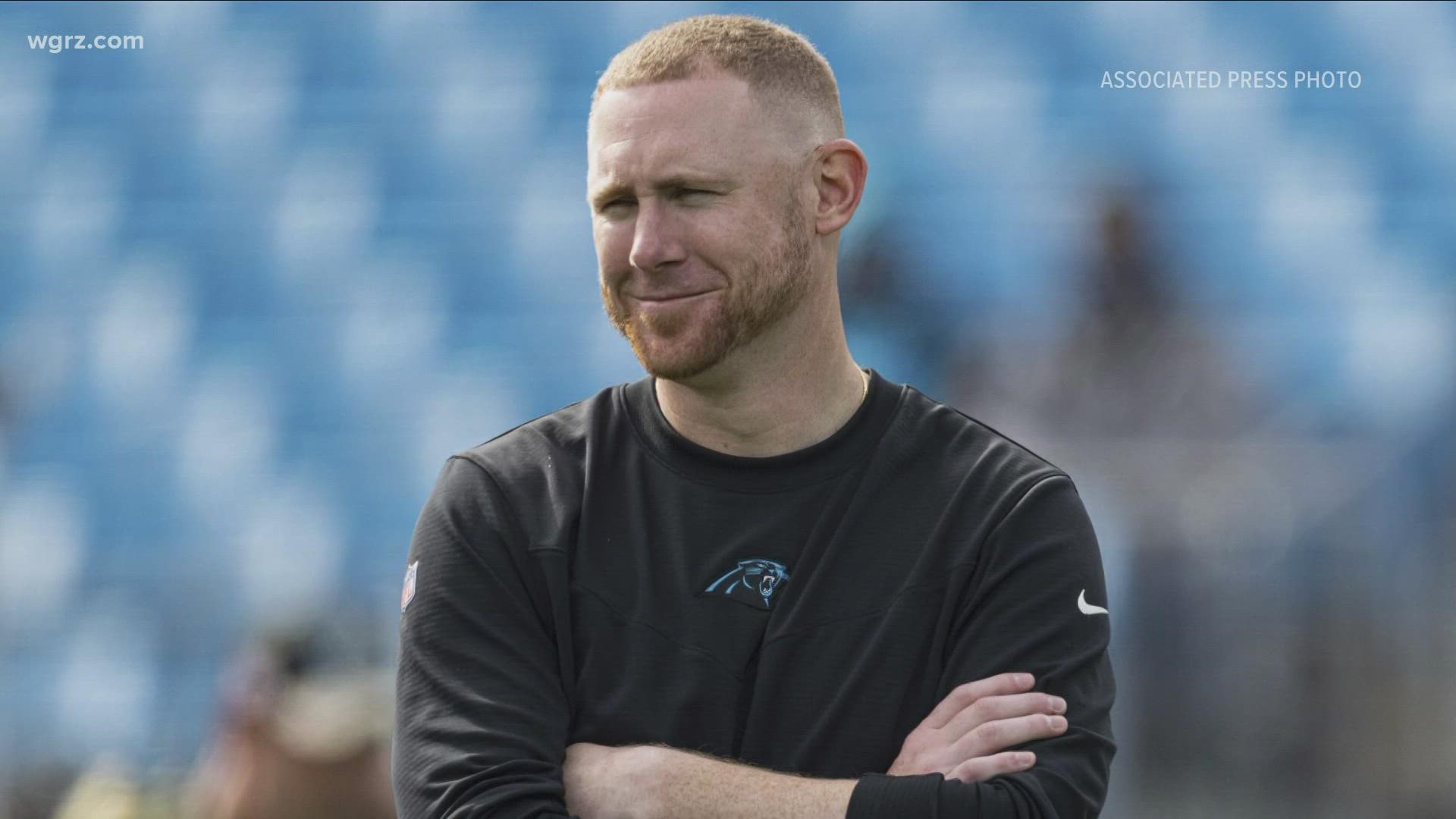ORCHARD PARK, N.Y. — It’s too early to say whether the Buffalo Bills did the right thing in making Ken Dorsey their offensive coordinator Tuesday.
Let’s see how he does calling plays, something his predecessor, Brain Daboll, handled exceptionally well during the four seasons he held the job before becoming head coach of the New York Giants on Jan. 28.
For now, we’ll describe the Bills’ decision to promote Dorsey from passing game coordinator/quarterbacks coach to OC as logical. And not merely because it was convenient to stay in house.
The Bills gave considerable weight to Dorsey’s close professional and personal relationship with Josh Allen. They were wise to invite Allen to have a say in how they’d proceed after Daboll’s departure, and clearly listened when the quarterback offered his two cents.
The Bills had little choice, considering that, for the foreseeable future, their fortunes are bolted to Allen’s performance. They know they’ll only go as far as his extremely talented arm and freakish athleticism take them.
That was why they stepped up to pay what was necessary to keep Dorsey. There was speculation Daboll was going to bring him to the Giants. However, according to my sources, at least a half-dozen NFL teams were interested in Dorsey as an offensive coordinator.
Play-calling is a skill that transcends helping a quarterback build and maintain good mechanics. Doing it at the extraordinary level that allowed Daboll to earn his first NFL head-coaching shot requires having an uncanny feel for what to call, when to call it and assembling X’s and O’s that perfectly suit the talents of the players executing them.
Only time will tell see if Dorsey, who has guided QBs for all of his previous eight seasons of NFL coaching (including five with the Carolina Panthers), has those sort of chops.
Nevertheless, Allen had every reason to believe Dorsey made more sense to be the Bills’ new offensive coordinator than anyone from the outside. Dorsey immediately earned his trust, partly because of Dorsey played quarterback in the NFL and can relate on a level that goes beyond coach-to-player, but mostly because of the instruction and reinforcement that has done so much for Allen’s development.
It’s fair to say Dorsey did as much as, if not more than, anyone in helping with Allen’s dramatic ascension to elite status since arriving in Buffalo as a raw rookie in 2018. Daboll also was important, but he was the offense’s CEO, in charge of all aspects, including blocking schemes, pass routes, the running game, play design and the playbook.
Dorsey’s focus was on one position and (primarily) one player: Allen. Dorsey understandably spent more time with him than Daboll or any other coach.
“I think when he got here three years ago, my career definitely changed in terms of how I viewed the game of football,” Allen said. “Just the way he approaches the game, he's competitive, he's smart. You know, he works his (butt) off.
“I appreciate what he's done for me over the course of my career so far.”

